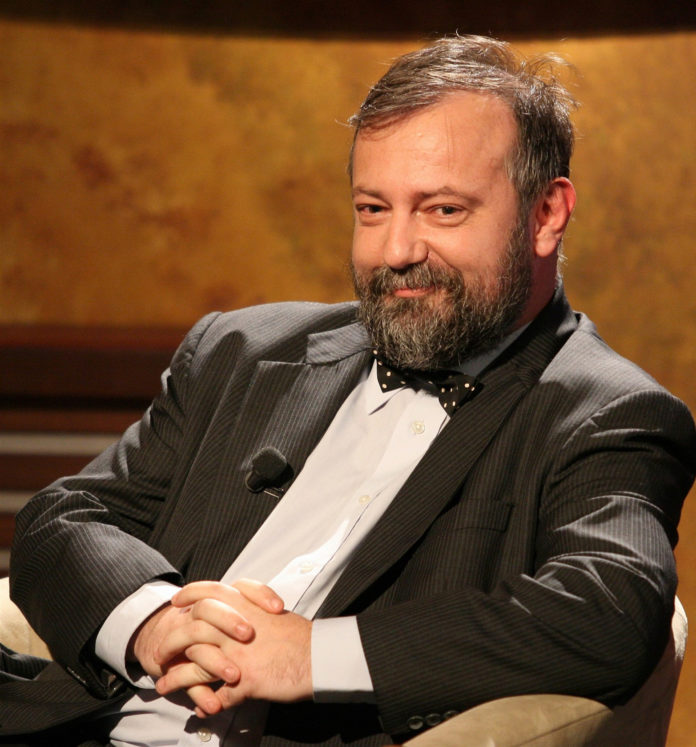
By Bridget Sjoberg | Staff Writer
Baylor celebrated 100 years of Czech Independence this week through a variety of on-campus events, including a keynote lecture by Ambassador Hynek Kmoníček.
The nation of Czechoslovakia officially declared independence from the Austro-Hungarian Empire in October 1918. Significantly, Baylor events this week celebrated 100 years of this historical moment. Presently, what used to be Czechoslovakia exists as two separate nations — the Czech Republic and Slovakia.
Central Texas has a unique tie to Czech history, especially in the city of West, as students and Waco residents have discovered through the presence of the popular kolache pastries at nearby Czech Stop. Czech families began to settle in West during the 1800s due to a large availability of land in Texas, and West is still known today as the “Czech heritage capital of Texas” and “home of the official kolache of the Texas Legislature,” according to West’s website.
Kathy Hillman, director of the Keston Center at Baylor, appreciates Czech influence in the Central Texas area and views Czech culture as unique and resilient.
“The Czech people have kept their heritage alive, especially through museums, festivals and in other forms,” Hillman said.
The keynote speaker of the week was Hynek Kmoníček, Czech Republic ambassador to the United States. Kmoníček has also served as Czech Ambassador to nations like Australia and India and as Deputy Foreign Minister and Director of the Foreign Affairs Department in the Office of the President of the Czech Republic. Hillman sees Kmoníček as an impressive figure and a positive addition to this week’s events.
“He has a very broad worldview – he has an undergraduate degree in music, has studied in Israel and served as an Ambassador to the United Nations, among other things,” Hillman said. “He is also very relatable and intellectual.”
Kmoníček gave a lecture on Thursday in Armstrong Browning Library titled “Lessons on Freedom: Perspectives on the Past, Prospects for the Future.” His talk was preceded by several musical acts, including a piano performance by Baylor graduate student Egle Uljas. Uljas is from Estonia, has played piano in concerts and competitions and ran in the 2004 Olympic games as a track athlete.
Kmoníček’s lecture was discussed in two parts: one being the story of Czech history and the other being what Czechs have learned about freedom from their people’s experiences. He began by speaking about a European perspective of historical narrative.
“Americans believe they are in charge of their own history,” Kmoníček said. “Europeans are afraid that history is in charge of us — it’s often been decided by someone else. This is important in the story of Czechs.”
Kmoníček also emphasized the Czech people’s view of freedom and how it has evolved over the years.
“What Czechs have learned from 100 years of fighting for freedom is that it can’t be given — it must be taken,” Kmoníček said. “We can only do that when we have freedom from fear. Czechs lived on fear, but when we were liberated from that fear we could embrace our freedom.”
Kmoníček also discussed topics related to Czech involvement in the European Union and North Atlantic Treaty Organization (NATO), the role of Russia in Czech politics and the future he sees for the Czech Republic and its people.
Garland sophomore Alison Rogers decided to attend the lecture after seeing it promoted on campus and found Kmoníček’s talk to be interesting and informative.
“I’m very interested in international studies and journalism,” Rogers said. “I got a lot out of the talk and I’m really glad I came. Now I really want to go on a Czech Republic study abroad program.”
Rogers especially appreciated Kmoníček’s commentary regarding the role of democracy and freedom in Czech culture.
“I thought the way he articulated the difference between types of democracy was interesting — a lot of the time we can really easily fall prey to the idea of democracy, but we don’t step back and examine the ideas behind it, how it works, and what kind of ideals need to be in play for democracy to work,” Rogers said. “We take the system and expect freedom to follow, but he talked about getting freedom first and then designing a system to follow.”
Other events this week began on Tuesday with the showing of two films “Oratorio for Prague” and “The Power of the Powerless” to commemorate the Prague Spring when Czechoslovakia sought to separate from Soviet control and influence. Wednesday featured “Audience” which is a play presented by the department of theatre arts, and this morning will showcase a lecture by Alice Lunakova about Czech history.
All events were sponsored by the Keston Center for religion, politics and society, as well as the department of modern languages and cultures and McLennan Community College.
Hillman said students interested in learning more about Czech history should visit the Keston Center, which is located on the third floor of Carroll Library.
“Keston includes resources and documents related to religious persecution, illegally published items, religious education materials, prayer books and letters. There are a number of one of a kind items,” Hillman said. “Keston has a reputation for truth — we would love students to learn about and use the resources.”





